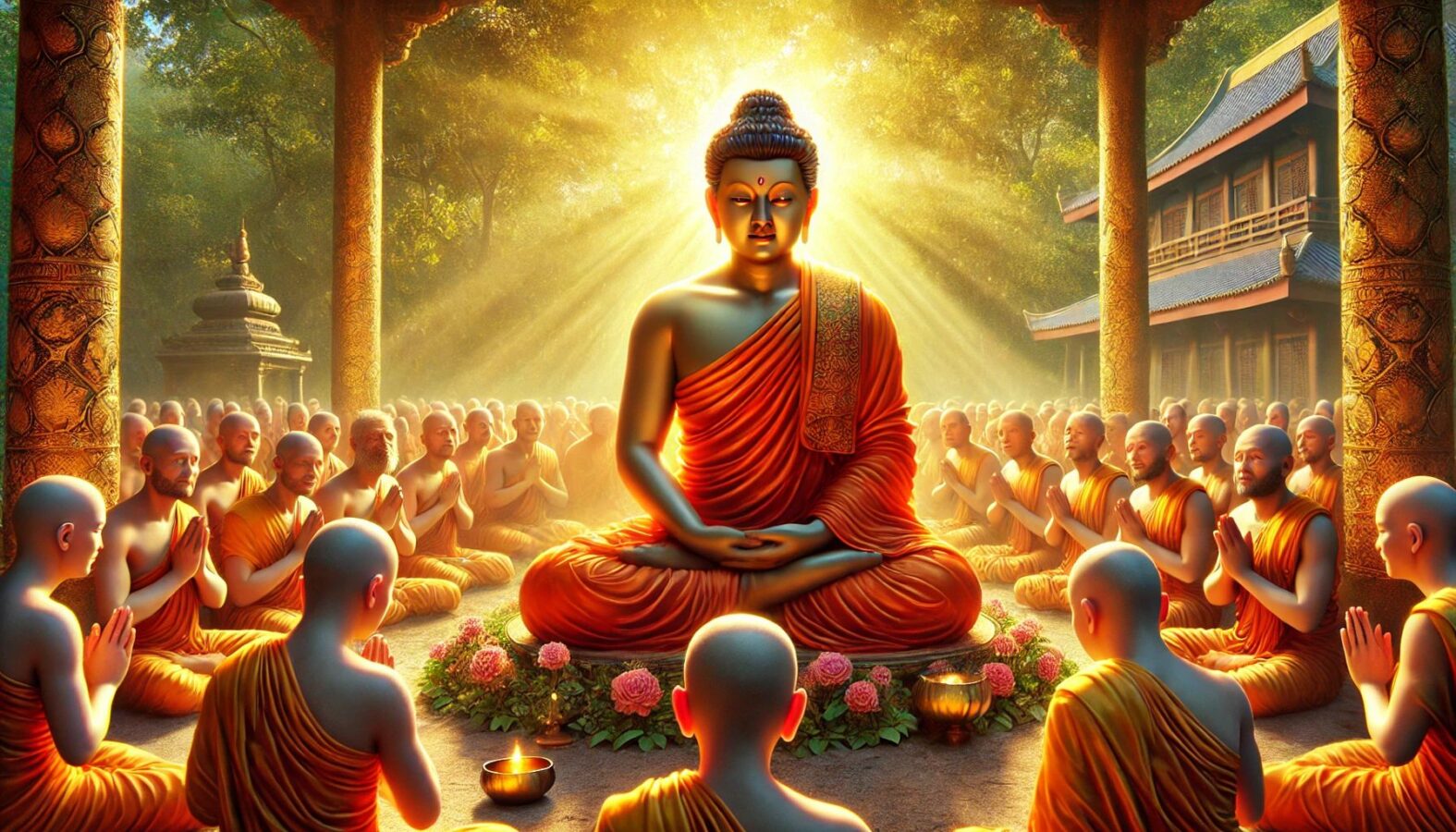
Date: 03/29/2025 03/30/2025
Location: Star River Meditation Center
Teacher: Yunquan Huang
Dharma Talk
The One Who Sees the Well’s Water—A Near Attainer of Liberation
Once, while staying at Jetavana Monastery, south of Sāvatthī, the capital of Kosala, the Buddha addressed the bhikkhus:
“Bhikkhus! Apart from relying on faith, apart from relying on intuitive preference, apart from relying on belief in ancient oral traditions, apart from relying on rational thought, and apart from relying on views formed through deep reflection, is there any other way to explain to others the direct knowledge of liberation—the realization that birth and death have ended, that the pure spiritual path has been fully established, that all that needed to be done has been accomplished, and that there is no longer any attachment to future existence?”
The bhikkhus requested the Buddha to teach them, and the Buddha said:
“Bhikkhus! There is indeed another way. For example, when the six sense faculties—such as the eyes—perceive the six sense objects—such as form—and greed, hatred, or delusion arises, one is aware of the presence of greed, hatred, or delusion in the mind. When greed, hatred, or delusion does not arise, one is aware that they are absent.
Does such awareness depend on faith? On intuitive preference? On belief in ancient oral traditions? On rational thought? Or on views formed through deep reflection?”
“No, Blessed One!”
“Bhikkhus! Isn’t this kind of awareness directly understood through wisdom?”
“Yes, Blessed One!”
“Bhikkhus! This is an example of how, apart from faith, intuitive preference, belief in ancient oral traditions, rational thought, and deep reflection, one can explain to others the direct knowledge of liberation—‘birth and death have ended…’”
At another time, Venerable Nālā, Venerable Mahāsiro, Venerable Supassa, and Venerable Ānanda were discussing together.
First, Venerable Nālā asked Venerable Mahāsiro:
“Friend Mahāsiro! Can one know, through right view and wisdom, that ‘aging and death arise because of birth; without birth, there is no aging and death; birth arises due to the maturation of karmic formations; the maturation of karmic formations is due to grasping…; and with the cessation of becoming, there is Nibbāna’? And can such right view and wisdom arise apart from faith, apart from intuitive preference, apart from belief in ancient oral traditions, apart from rational thought, and apart from views formed through deep reflection?”
Venerable Mahāsiro replied:
“Yes! I do have the right view and wisdom that ‘aging and death arise because of birth… and with the cessation of becoming, there is Nibbāna,’ but it does not come from faith, nor from intuitive preference, nor from belief in ancient oral traditions, nor from rational thought, nor from views formed through deep reflection.”
“Friend Mahāsiro! Since you say you have the right view and wisdom that ‘with the cessation of becoming, there is Nibbāna,’ does that mean you are an Arahant, one who is fully liberated and free from all defilements?”
It seemed that Venerable Nālā was shifting the focus of the discussion and pressed further.
At this, Venerable Mahāsiro fell silent. He was clearly unwilling to respond to such questioning—perhaps because there was a contradiction in the question itself, or perhaps because he had not yet attained liberation and was not an Arahant.
Venerable Nālā asked him repeatedly, but Venerable Mahāsiro remained silent, and the discussion reached an impasse.
At this point, Venerable Supassa, who was observing the exchange, felt that he could answer the question. With Venerable Mahāsiro’s consent, he stepped in and answered Venerable Nālā:
“Friend Nālā! Apart from faith, apart from intuitive preference, apart from belief in ancient oral traditions, apart from rational thought, and apart from views formed through deep reflection, there is indeed the right view and wisdom that ‘with the cessation of becoming, there is Nibbāna.’”
“You say that there is the right view and wisdom that ‘with the cessation of becoming, there is Nibbāna.’ Does that mean you are an Arahant, fully liberated and free from all defilements?” Venerable Nālā asked again, showing continued concern about this question.
Venerable Supassa replied:
“I say that there is the right view and wisdom that ‘with the cessation of becoming, there is Nibbāna,’ but I am not yet an Arahant, fully liberated from all defilements.”
“If you have already gained the right view and wisdom that ‘with the cessation of becoming, there is Nibbāna,’ why are you still not fully liberated as an Arahant? Isn’t this contradictory?” Venerable Nālā objected.
At this, Venerable Supassa gave an analogy to clarify his point:
“Friend! Suppose there is a well by the roadside in a desolate wilderness, but there is no rope or bucket to draw water.
On a scorching day, a traveler, exhausted and extremely thirsty after a long journey, arrives at the well. He clearly sees the water at the bottom of the well, but because he lacks the tools to draw it, he is unable to drink.
This situation is like my case: I have the right view and wisdom regarding Nibbāna, yet I am not fully liberated as an Arahant.”
At this point, Venerable Ānanda, who had been listening, turned to Venerable Nālā and asked:
“Friend Nālā! After hearing Venerable Supassa’s explanation, do you still have any objections?”
“Friend Ānanda! After hearing Venerable Supassa’s words, I have nothing more to say except to praise his excellent and skillful explanation.”

